MadCap Flare 2020 adds improvements to its microcontent feature by supporting conditions.
In this blog post, I delve into the enhancements and provide step-by-step instructions on how you can marry microcontent with conditions. Flare recently created a post on some of the microcontent improvements in the latest release of the software; this blog provides additional details.
What is microcontent?
According to Flare’s online help, “Micro content is short, concise information that stands alone and is easily consumable.” Common ways to use microcontent in Flare include building FAQs, working with chatbots, and adding microcontent to search results. In this blog post, I explain how to add microcontent in MadCap Flare 2020 to your online help search results.
What does microcontent look like?
If you search for certain terms, such as “conditions” in MadCap Flare’s online help, you see examples of microcontent.
For years, Google has used the same paradigm. For example, type “how to power wash” (I just bought a power washer) and the search engine displays a summary of the steps without me even having to click a website.
Add microcontent in Flare
First, I drafted a topic called “Adding Variables” that includes five steps and two screen captures. I conditionalized the images so they only appear in the topic.
I conditionalized the images with the TopicOnly tag (I assume that you know how to conditionalize content in Flare). This topic serves as the master for the microcontent.
To re-use the topic as microcontent:
- In Flare, click the Content Explorer.
- Under Resources, click MicroContent.
- Right-click the MicroContent folder and select New > Micro Content.
- In the Add File dialog box, type a new name for your microcontent in the File Name field and click Add.
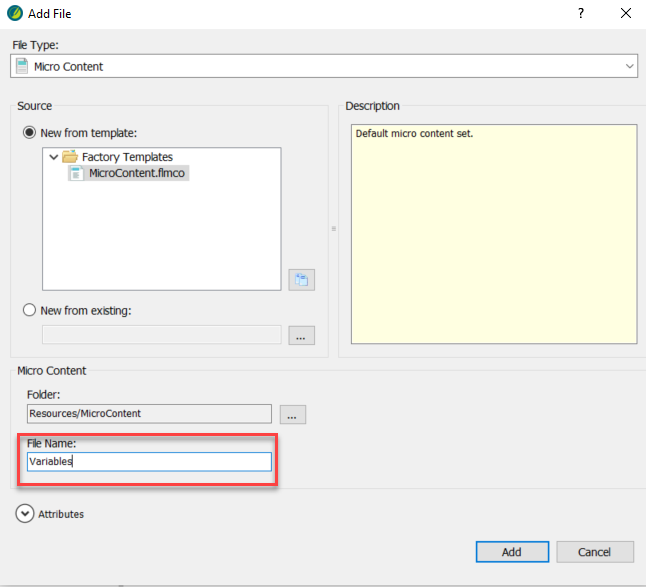
- In the Microcontent editor, click the Add a phrase icon.
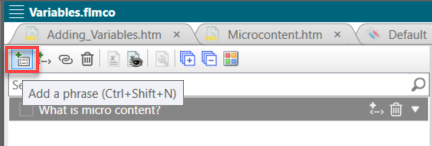
- Type a phrase for the microcontent, such as “Variables.” Phrases are the keywords that you think users will type in the help’s search field when looking for a certain topic.
- Optionally, you can type alternate phrases for the topic (for example, “Adding Variables,” “Using Variables,” and so on).
- Right-click the phrase(s) and select Add Link.
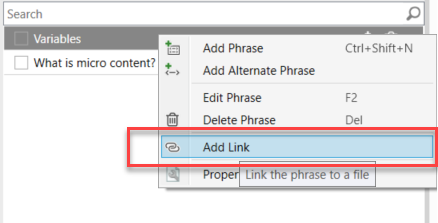
- In the Select File dialog box, link the phrase to a topic (I linked my phrase to the Adding Variables topic that I recently created) and click OK.
- Right-click the phrase you added and select Properties.
- Click Micro Content Conditions.
- In the list of Tags, select Default.TopicOnly and click Exclude. This step excludes the images that I added in the original help topic so they do not appear in the microcontent.
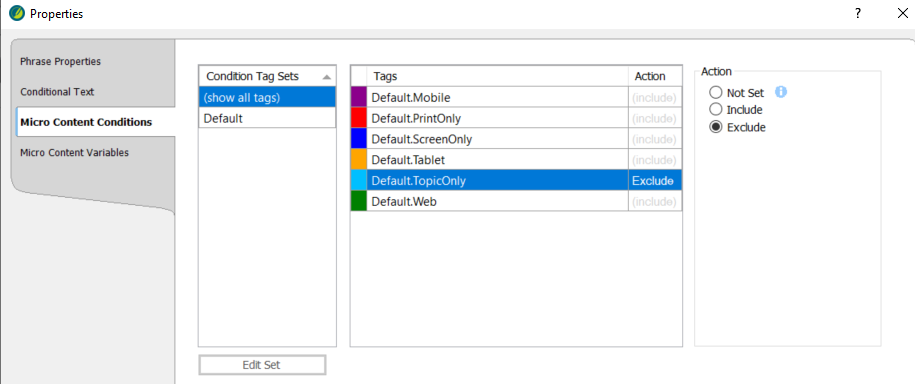
- Save your project.
- Generate your help.
View the search results with microcontent
When users type the phrase “Variables” in the search field, they see microcontent that is based on the topic but does not display any images as we conditionalized them to not display. We are trying to just display critical content in a concise way. Here’s an example:
Of course, the full topic is also available in the help including the images.
Why is this a welcome improvement?
This enhancement is a worthwhile development as you can re-use existing topics and optimize the content so it’s ideally suited for microcontent. For departments who are already using microcontent, this feature is a welcome addition.
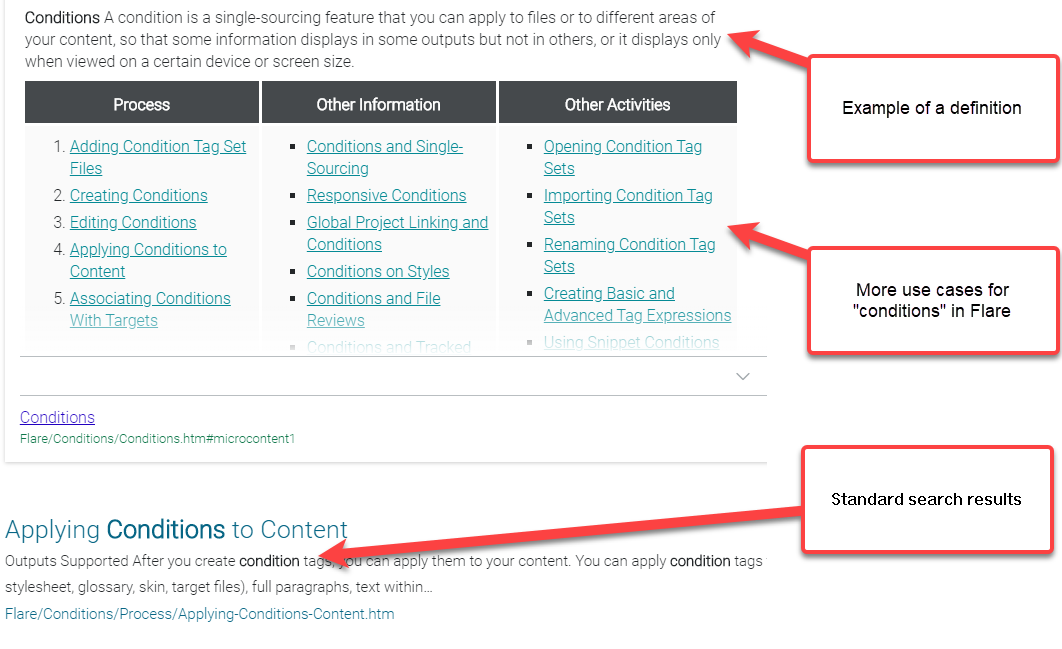
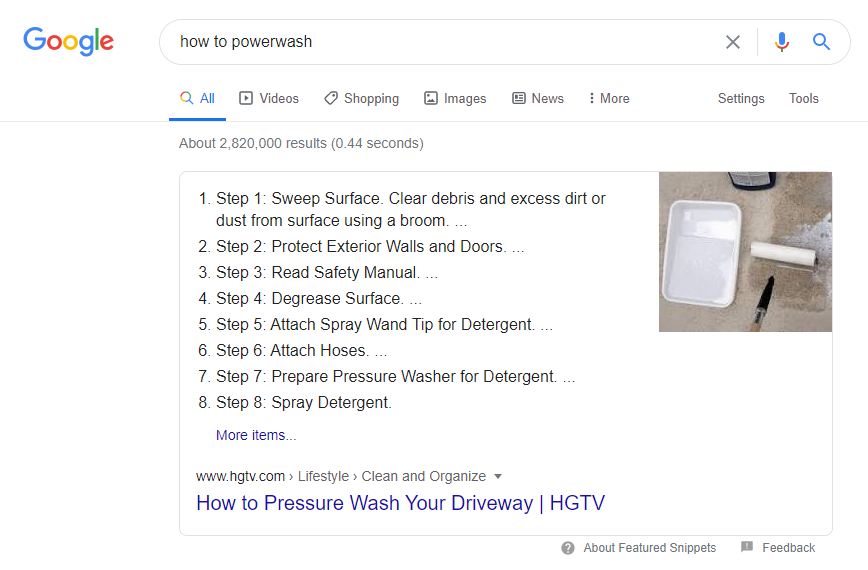
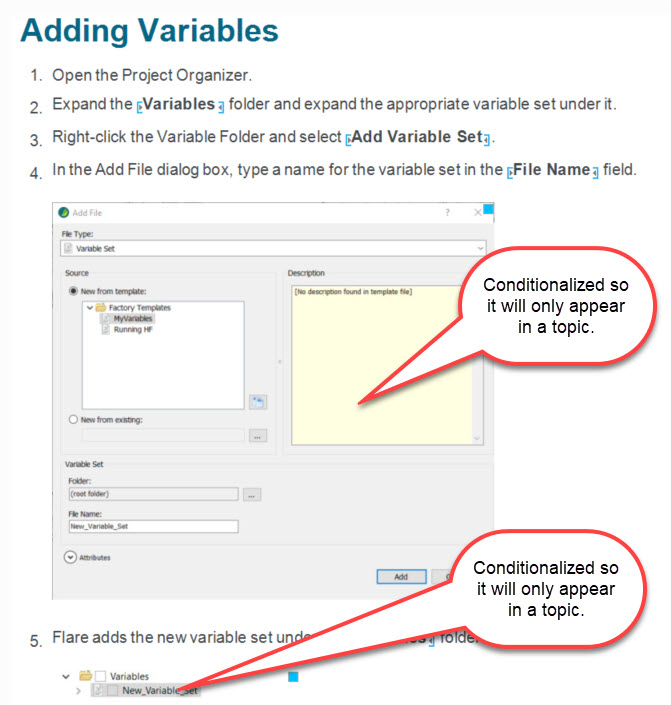
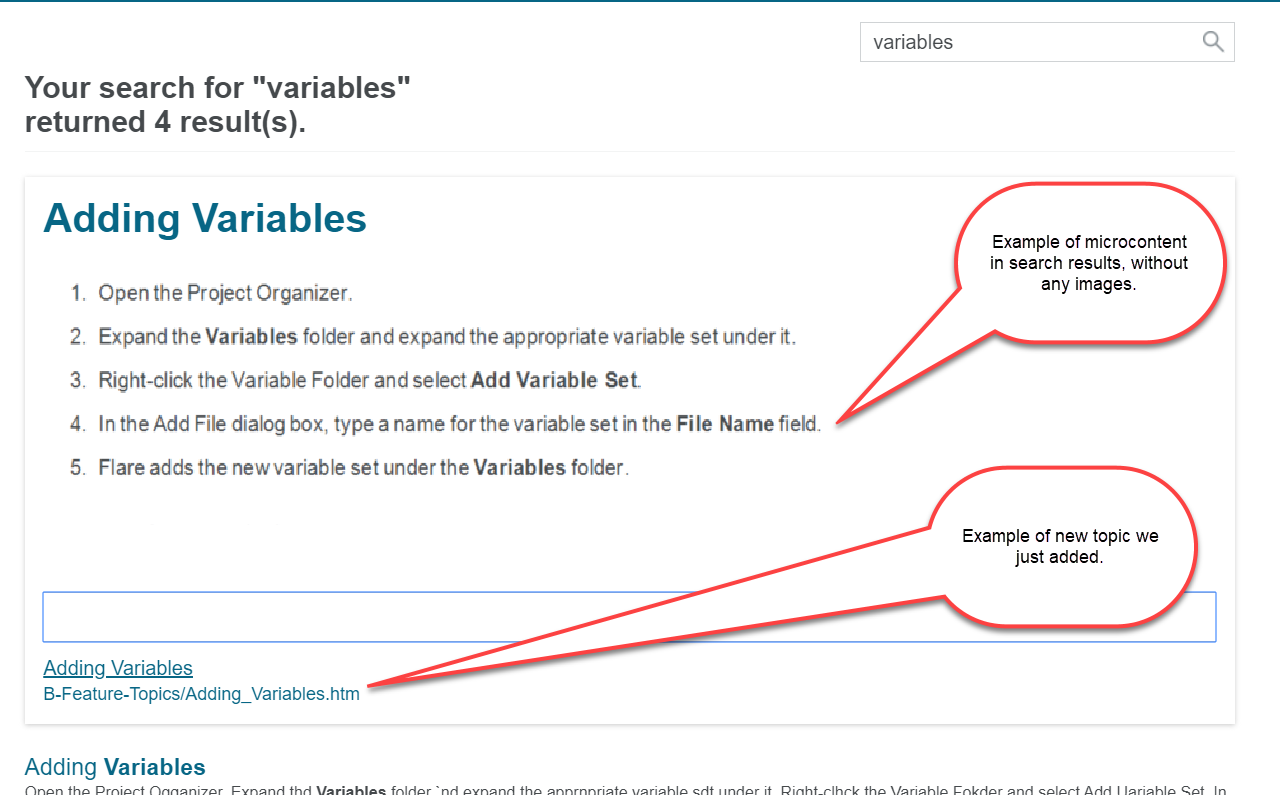
 I have worked as a
I have worked as a